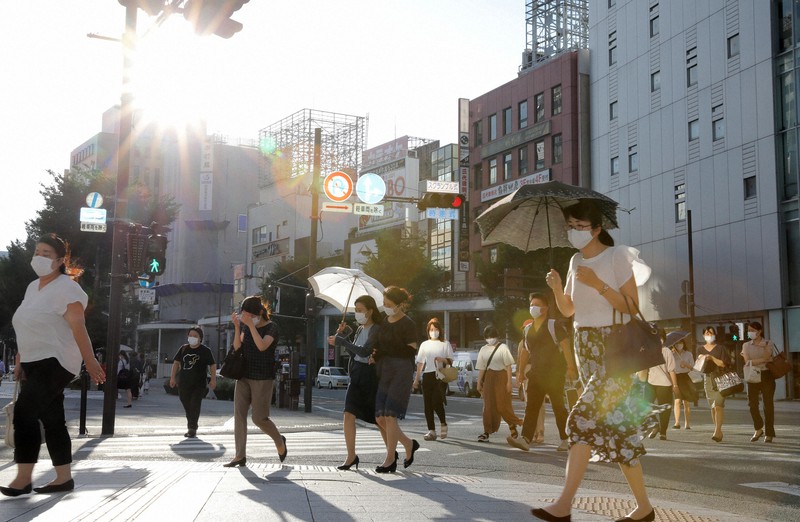 気温54.4度の衝撃 異常気象は日常に…? そんな未来で起きること
気温54.4度の衝撃 異常気象は日常に…? そんな未来で起きること
Impact of the 54.5 degree
Serious damage caused by extreme weather has occurred all over the world this year as well. In Japan, the record of heat has been updated almost every year. Will abnormal situations become "every day" in the future? We summarized the current state of the world affected by record heat and heavy rain and explored the background.
"It was a record heatwave that was remembered for a long time." The National Weather Service issued a statement this month following a heatwave in California.
Death Valley, a national park in central Tong. It means "valley of death" and was known as one of the hottest places on earth, and the temperature was 54.4 degrees Celsius on the afternoon of August 16. According to the World Meteorological Organization (WMO), if it is recognized as an official record after verification by meteorologists, it will be the third-highest temperature in the world and the highest temperature in 89 years since 1931.
Even in September, the western part of the United States, including California, has been hit by heatwaves. In Los Angeles, the highest temperature in the history of observation was updated at many points in the state, such as recording a maximum temperature of 49.4 degrees on the 6th. Since mid-August, wildfires, which are thought to be caused by lightning strikes, have occurred frequently, and fire fighting activities have not caught up with the continued high temperature and dryness.
According to he US National Oceanic and Atmospheric Administration, the northern hemisphere this summer (June-August) was the hottest in the history of observation since 1880. In the Arctic, where warming is more than twice as fast as in other parts of the globe, markedly high temperatures continue, with large-scale ice melting and forest fires reported.
In Verkhoyansk, northern Russia, a temperature of 38 degrees was observed on June 20, setting the highest record in the history of observation in the Arctic Circle. In a wide area of Siberia, the average temperature from the end of June this year was more than 5 degrees higher than the average for the same period from 1981 to 2010, and a research team by the European Meteorological Organization said, "No effect of artificial climate change. It was almost impossible to happen. "
Source: https://mainichi.jp/articles/20200920/k00/00m/040/086000c?cx_testId=81&cx_testVariant=cx_2&cx_artPos=0&cx_type=trend#cxrecs_s
 English
English Japan
Japan
